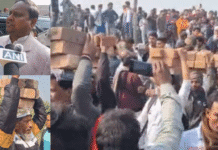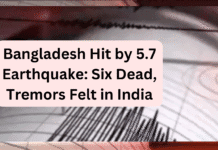Kanyashree Prakalpa Scheme In West Bengal:-
Department of Women Development and Social Welfare, Government of West Bengal (DWD and SW) has designed the Kanyashree Prakalpa a conditional cash transfer scheme with the aim of improving the status and well being of the girl child in West Bengal by incentivizing schooling of all teenage girls and delaying their marriages until the age of 18, the legal age of marriage. Kanyashree Prakalpa is a West Bengal Government sponsored scheme which will be implemented henceforth ai in all districts of the state.
Components of the Kanyashree Prakalpa Scheme :
ALSO READ : AIKYASHREE SCHOLARSHIP FOR MINORITY STUDENTS
The scheme has two components :-
- Annual Scholarship of RS 500
- One time Grant of RS 25,000
The Annual Scholarship is for unmarried girls aged 13 to 18 years enrolled in classes viii to xii in government recognized regular or equivalent open school or equivalent vocational or technical training course.
The One – Time Grant is for girls turned 18 at the time of application, enrolled in government recognized regular or open school or college or pursuing vocational or technical training or sports activity or is an inmate of Home registered under J.J. Act 2000.
Both the benefits under the scheme will be granted to girls who belong to families with annual family income not more than RS 1,20,000. The bar for family is not applicable if the girl has lost both the parents, is physically challenged 40% disability or is inmate of J.J. Home.
Given that child marriage has a grossly negative impact on the lives of children, adolescents & young women, this scheme is expected to bring about improved outcomes in terms of their educational status, health and contribute towards the empowerment of the girls in the state, and bring immeasurable benefits for the larger society as a whole.
Target Beneficiary :
- All girl children within the age of 13 to 19 years from families with annual income up to RS 1,20,000
- Girls regularly attending institutions for education or vocational /sports training
- Girls of Child Care Institutes registered under J.J. Act within the age of 18-19 years
- For the one-time grant, girls who are completing 18 years on or after 1st April 2013
- Approxmately 18 lakhs of girl students for annual scholarship each year
- Approxmately 3.5 lakh girls for one time grant each year.
Why Kanyashree :
Under the Prohibition of Child Marriage Act, 2006 (PCMA), 18 is the legal age of marriage for girls, and 21 for boys in India. Despite several years of this Act being in existance, the early marriage of children continues to be practiced in West Bengal. According to DLHS 3, 2007-08, the state ranked fifth highest in the country when it came to the prevalence of child marriage, with almost every second girl a child bride. Although more pervasive in rural areas, statistics revealed then even in non-slum areas of Kolkata, more than a quarter of girls are married before they reach adulthood.
Child marriage is a gendered practice, affecting far more girls than boys. It is perhaps the the most prevalent from of sexual abuse of minor girls, and has a negative impact on their health and the health of their children, leaves them financially and socially disempowered, and vulnerable to child labour, trafficking and other forms of exploitation. In fact, the districts with the highest incidence of child marriage in West Bengal are also those where trafficking is rampant.
Eligibility Criteria for Kanyashree Prakalpa Scheme :
Eligibility Criteria for this scheme are as follows :-
* Residents of West Bengal
- Enrolled and regularly attending an educational institution
- Unmarried
- From families where the total income is not more than RS 1,20,000.






